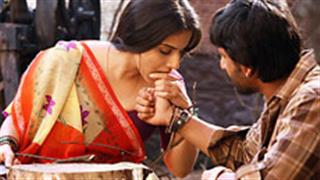A short film produced by the Films Division was screened in the capital to celebrate the 85th birth anniversary of legendary playback singer Mohammed Rafi.
The short film on the life of Rafi and his songs titled "Rafi-Tum Bahut Yaad Aaye" is directed by Kuldeep Sinha.
"I had been thinking about making a film on Rafi sahab, since his death in 1980. I had actually discussed the project with music director Naushad and he had promised to give full cooperation but due to some unavoidable reasons, I could not make this film at that time, " said Sinha.
A seminar on the songs and different aspects of the singer's life, who was born Dec 24, 1924, was also organised on the occasion.
Amarjit Singh Kohli, chairman of Sakha and Yaadgar-e-Rafi, said: "Rafi, due to his versatility, has the greatest fan following amongst young upcoming singers. The possibility of training young singers through a course of Rafi's songs (classical, light & other shades) selected by music researchers, could be seriously explored."
Vinod Viplav, writer and journalist and author of the first biography of Mohammad Rafi "Meri Awaz Suno", said: "The contribution of Mohammad Rafi has been neglected on various levels. People usually remember him as the best singer or the best man while he is more than that - he is the symbol of communal harmony, secularism and national integration and he must be remembered in this form."
Rafi, whose career spanned four decades, sang in many Indian languages including Hindi, Urdu, Bhojpuri, Punjabi, Bengali, Marathi, Sindhi, Kannada, Gujarati and Telugu. He also recorded English and Persian songs.
His first public performance came at the age of 13, when he was allowed to sing at a concert featuring legendary singer K.L. Saigal.
The singer is still famous for songs like "Ae gulbadan ae gulbadan" ("Professor"), "Chhoo lene do nazuk hothon ko" ("Kaajal"), "Pardah hai pardah" ("Amar Akbar Anthony") and "Dard-e-dil dard-e-jigar" ("Karz"), among others, and is a source of inspiration for upcoming singers.
Short film on Rafi screened on his 85th birth anniversary
Friday, December 25, 2009 11:56 IST













